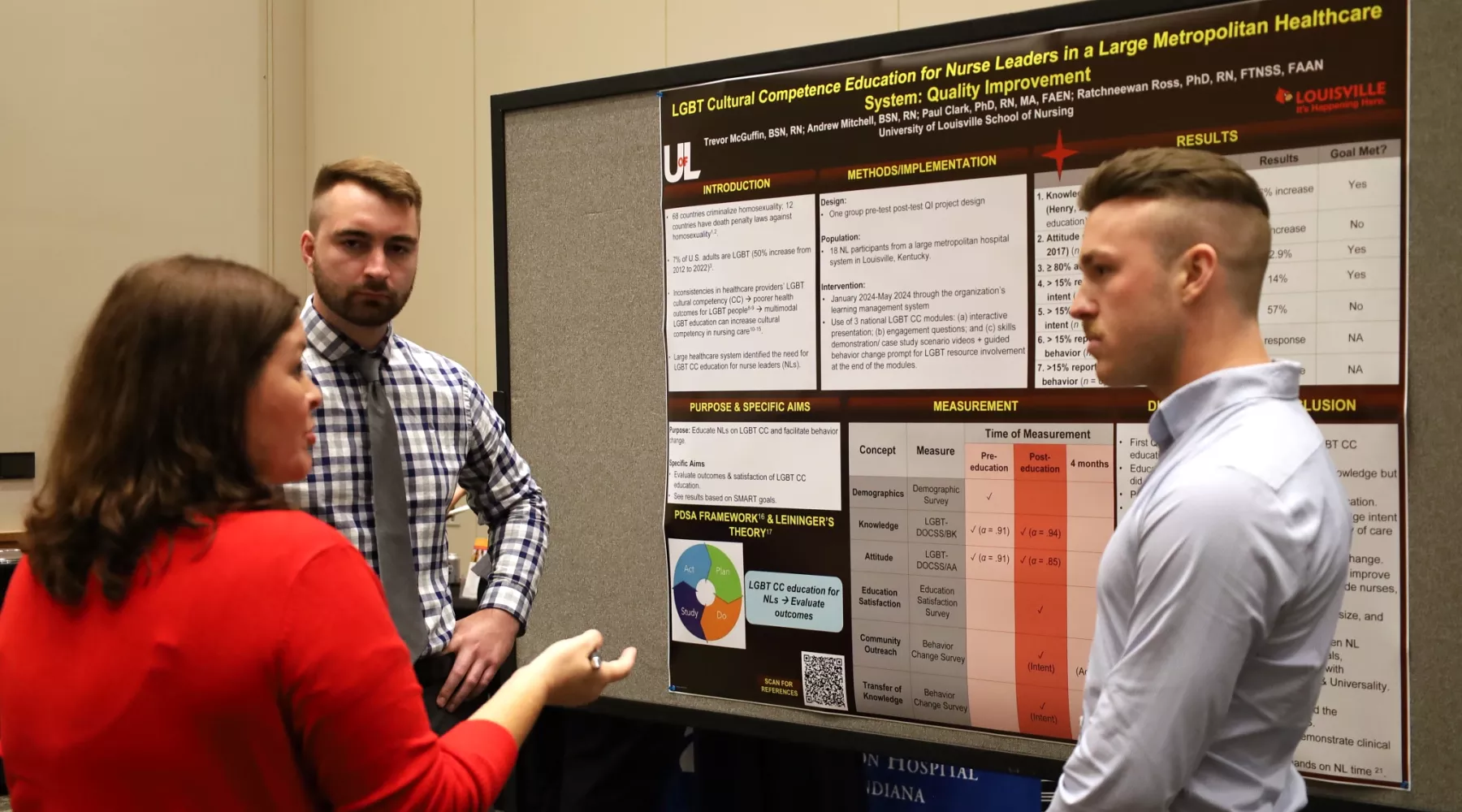
Nurse Practitioner Specialties
Sidebar
The UofL School of Nursing APRN program provides the perfect balance of in-person and online instruction, designed to fit your lifestyle while delivering exceptional education. We believe that meaningful connections matter, which is why our program creates opportunities for you to meet fellow students, build lasting friendships, and develop strong relationships with our dedicated faculty.
Our commitment to your success is reflected in board certification pass rates, greater than 90% year after year. When you join our program, you're not just earning a degree—you're becoming part of a supportive community that will champion your growth every step of the way.
We welcome you to launch the next chapter of your career at the University of Louisville School of Nursing, where excellence meets opportunity.
Nurse Practitioner Specialties
Designed for current baccalaureate-prepared nurses, the APRN program offers specialized training in a chosen field, preparing graduates for advanced roles in nursing practice and patient care.
Features of the APRN Program:
- Holistic admission review includes professional career goals, academic capabilities, grade point average, work experience, leadership and community engagement
- Nationally recognized faculty scholars
- Courses are taught in a blended format with on-campus and online instruction.
- In-person learning is composed of clinically interactive and simulation activities to enhance learning experiences and course competencies
- All specialties are offered at the MSN, DNP, and Post-Graduate certificate levels
- Clinical preceptor provided for all students
- APRN students will complete a minimum of 672 patient care clinical hours, including in-person and simulation
The UofL APRN program will prepare students to:
- Collaborate with other disciplines to improve the delivery of health care
- Affect health policy through the application of knowledge
- Utilize evidence in advanced nursing practice to improve health outcomes
- Demonstrate knowledge of advanced nursing care practice to individuals, families, and communities
Nurse Practitioner Profession Rankings
Best Job
Best Health Care Job
Best STEM Job

Explore Program Details
Interested in learning more about Nurse Practitioner programs at the UofL School of Nursing? Visit the UofL Academic Catalog for program details.


